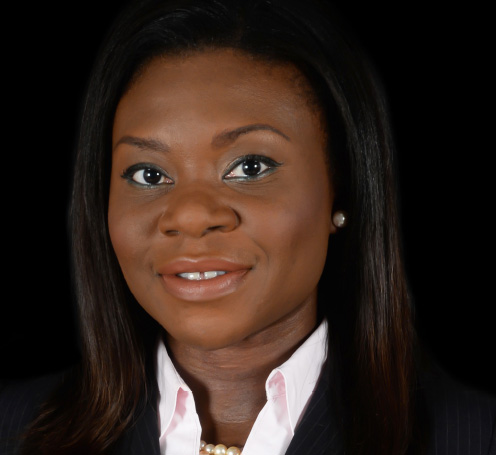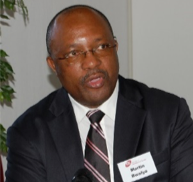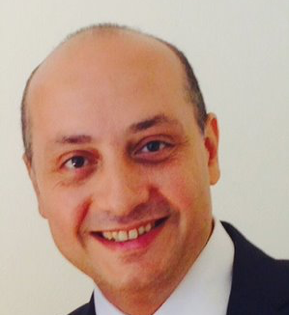Implementing the SDGs in the Time of Covid-19
14 May – 12:30 GMT
Webinar
The coronavirus outbreak has caused unprecedented and serious challenges throughout the world, including Africa. The pandemic has barely reached the sub-Saharan Africa, about 1% of all cases reported globally. However, the Continent will most likely be disproportionately affected by the pandemic due to its vulnerabilities, causing grave concern over the growing loss of human lives and the significant economic and social impacts of the crisis on the continent.
The 2030 Agenda for Sustainable Development Goals, adopted by all UN Nations Member States in 2015, provides a shared and sustainable blueprint for peace and prosperity for people and the planet.
More specifically to the African Continent, Covid-19 experience highlights the value and need to embed wellbeing and socio-economic resilience in Africa’s development in line with the goals and targets of Agenda 2063 and SDGs. COVID19 also reaffirms the importance of regional cooperation to harness both technical and financial resources for the collective development and transformation.
Covid-19 reinforced the need for stronger global and regional partnerships if the SDGs are to be fully achieved and to build resilience to social, economic and environmental shocks. Significant steps have been already made in terms of improving life quality and standards.
However, the most common opinion is that the SDGs have not been successful for developing countries especially for Africa, since several goals were not met by 2015.
The webinar will take place on Thursday, May 14th at 12:30 GMT. To attend the event, please click here.
Keep me informed-

Lade Araba, Managing Director, Africa, Convergence
Ladé Araba is a senior development finance professional with over 17 years of experience. She is the Managing Director for Africa at Convergence Finance. She previously served as Technical Adviser to the former Minister of Finance of Nigeria and was the Head of the Strategic Monitoring Unit. She was also an Adviser in the Power Sector Team at the Nigeria Infrastructure Advisory Facility (NIAF), a Technical Assistance Program funded by the UK Department for International Development (DFID). Prior to NIAF, Ladé was Technical Adviser to the Executive Secretary of the United Nations Economic Commission for Africa (UNECA) where she advised on the building blocks for financing regional infrastructure projects and promoting intra-African trade. She was formerly a Senior Investment Officer at the African Development Bank, where she played key roles in deal origination and appraisal, and led diverse teams to obtain Board approval for senior loans to several infrastructure projects across Africa collectively valued in excess of $2 billion. Ladé was an Enterprise Development Specialist at the UN Food and Agriculture Organization (FAO) and also worked for the QED Group LLC in Washington, DC. She holds a Master of Business Administration (MBA) degree from Thunderbird School of Global Management and a dual Bachelor of Business Administration (BBA) degree in Management Information Systems (MIS) and International Business from the University of Oklahoma (2001). A native English speaker, she is fluent in French and Italian and has basic knowledge of Spanish.
-

Martin Bwalya, Head, Industrialization Division, AUDA-NEPAD
Currently, Head, Industrialisation Division in the African Union Development Agency (AUDA-NEPAD) – African Union’s Technical Implementing Agency - is a Machinery Design and Machine Management Engineer by training. Has worked many years in machinery design, specialising in research-and-development of farm reduced tillage equipment within the context of conservation agriculture. Has since 2000, worked in several international organisations in the field of development, in general, and agriculture, food systems and nutrition, in particular. Joined the then NEPAD Agency in 2008 as lead specialist on Sustainable land and water management, moving on to Head the Comprehensive Africa Agric19ulture Development Programme (CAADP) – Africa’s continental framework for agricultural transformation - 2009 until 2014 and Head of Programme Development until 2019 when moved to Head the newly established Industrialisation Division. Has extensive experience in research, foresight analytical work and African development including connecting across various national and regional needs and interests in multi-disciplinary and multi-sectorial systems. Additional to agriculture-Sustainable Land and Water Management (SLWM) and farm machinery design, thematic focus include, irrigation and climate smart agriculture - co-chair of the Global Alliance for CSA (GACSA), 2014 to 2018. As Head of CAADP (2010-2016), this gave Mr Bwalya extensive exposal and experience with rural livelihoods, in general, and national and regional public policy and institutional systems, in particular, across the entire continent and into global systems.
-

Mohammed Elrazzaz, Expert, Business Development and Employability, Union for the Mediterranean
Mohammed Elrazzaz is a Barcelona-based Egyptian expert. He joined the Secretariat of the Union for the Mediterranean in 2013, first working for Cabinet before moving to the Business Development and Employment Division, where he handles Social, Digital and Creative Economy. He had worked for the Commercial International Bank (CIB) Egypt for 10 years as Financial Analyst and Head of Investor Relations.
Mr. Elrazzaz is also a Professor of Mediterranean Heritage at the International University of Catalonia (UIC) in Barcelona since 2010. He holds a BA in Economic Studies and an MA in Humanities.
-

Mouhamadou Moustapha Ly, Senior Economist, Policy Center for the New South
Senior economist at the Policy Center for the New South (PCNS), Mouhamadou LY hold a PhD in development economics. His research activities focus on development macroeconomics especially on fiscal and monetary policies. Mr. LY has also been a consultant for several international development organizations and for the Senegalese government.
-

Landry Signé, Senior Fellow, Policy Center for the New South
Professor Landry Signé is a David M. Rubenstein Fellow in the Global Economy and Development Program and Africa Growth Initiative at the Brookings Institution, distinguished fellow at Stanford University’s Center for African Studies, chairman of the award-winning Global Network for Africa’s Prosperity, Andrew Carnegie Fellow at the Andrew Carnegie Corporation of New York, professor and senior adviser to the Chancellor on international affairs at UAA, and a senior nonresident fellow at the Policy Center for the New South. .
Recognized as a World Economic Forum’s Young Global Leader, Private Investors for Africa Fellow, and Tutu Fellow that “drives the transformation of Africa,” he is an award-winning transformational leader and special adviser to world leaders on international and African affairs. Previously, Landry was founding president of a business strategy and development firm based in Montreal and a visiting scholar at the University of Oxford. He has also served on the board of organizations such as AMPION Catalyst for Entrepreneurship and Innovation in Africa, Citizens Governance Initiative, and the United Nations Association of Canada–Montreal, and has been appointed by a United Nations Under-Secretary-General to serve on the Global Network on Digital Technologies for Sustainable Urbanization and by the African Union Youth Advisory Board. He has authored numerous publications, given presentations at prestigious platforms, and has also won over sixty prestigious awards and recognitions from four continents. His work has appeared in The New York Times, The Washington Post, and the Harvard International Review.









